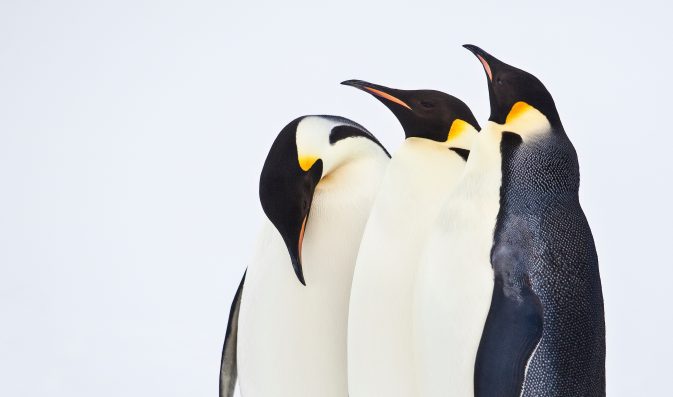A Malnourished Emperor Penguin Was Found On A Beach, Thousands Of Miles From Its Icy Home

A malnourished emperor penguin was found on a beach in Australia, thousands of miles from its icy Antarctic home. The penguin was spotted by a beachgoer on a popular tourist beach in the town of Denmark, located in southwest Australia. The beach is about 2,200 miles north of the Antarctic coast.
The beachgoer, a local surfer named Aaron Fowler, was with his friends when they saw the penguin coming out of the water. It waddled toward the group and tried to slide on the sand, perhaps thinking it was snow.
Wildlife experts were notified and arrived to check on the penguin. They rescued the bird and took it to a rehabilitation center. The black and white penguin was an adult male that stood three feet tall.
At the time it was discovered, it weighed only 51 pounds. A healthy male emperor penguin usually weighs around 100 pounds.
“The bird sort of turned at an angle, and I could see its backbone protruding, and I thought this bird is well undernourished,” said Carol Biddulph, a seabird rehabilitator who is caring for the penguin.
“Between the condition of the bird and the activity that might have happened on the beach the following day, I thought it was best to bring the bird in.”
Biddulph shared that it was not easy getting the bird back to the car. She helped the penguin get into a large canvas pet carrier and transported it to a penguin enclosure. A local veterinarian and wildlife officials assisted with weighing and treating the animal.
The emperor penguin is the largest penguin species in the world. The birds are known for their black and white coloration and their regal manner. They live on the ice shelves of Antarctica.
Until now, the emperor penguin had never been reported in Australia. Some have reached New Zealand before, which is almost entirely south of Denmark.

Janet Muir/Danita Delimont – stock.adobe.com – illustrative purposes only – pictured above are three emperor penguins
The sighting on the Australian beach is believed to be the farthest that a wild emperor penguin has ever strayed from its natural habitat. It is unclear why the penguin traveled so far away from home to Australia’s coast.
“The furthest north they go from Antarctica is about 50 degrees south [latitude] from my readings, and Ocean Beach is 35 degrees south,” said Belinda Cannell, a research fellow at the University of Western Australia. “So, a lot further north than what they’ve ever tracked emperor penguins from Antarctica before.”
Officials hope to get the penguin, which they have nicknamed Gus, back home to Antarctica once he’s stable enough.
Emperor penguins are among the many species threatened by warming oceans and seas across the world. Due to climate change, the sea ice that these penguins rely on for breeding has been disappearing, putting emperor chicks at risk.
With the climate continuing to experience extreme fluctuations, we might be seeing more and more marine animals being thrown off course.
Sign up for Chip Chick’s newsletter and get stories like this delivered to your inbox.
More About:Animals





